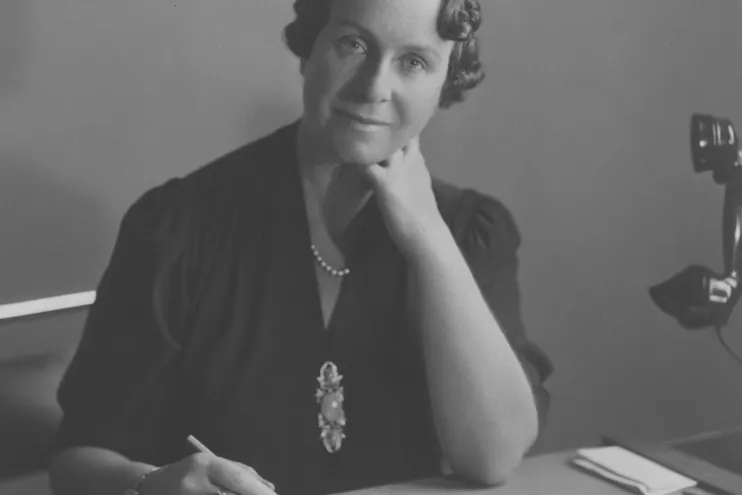Celebrating 130 Years of Dame Caroline Haslett
August marked the 130th anniversary of the birth of Dame Caroline Haslett (17 August 1895 - 4 January 1957), one of Britain’s most influential electrical engineers and a pioneer for women in STEM. Honouring her extraordinary legacy, we’re proud to support a new PhD project named in her memory, launching this October.

Born in Worth, Sussex, Haslett defied the gender norms of her time to become a formidable force in electrical engineering. With a career that spanned decades and sectors, she championed the electrification of homes, and the professionalisation of engineering for all. Her legacy is not only one of technical innovation, but also of social reform and equality.
Haslett’s early career began at the Cochran Boiler Company during the First World War. There, she developed a fascination with electrical systems and quickly moved up the ranks. In 1924, she became the first Secretary of the Women's Engineering Society (WES), and shortly thereafter, the founding director of the Electrical Association for Women (EAW). The EAW revolutionised domestic life by promoting the benefits of electricity in the home and providing women with the technical knowledge to safely and confidently use it.
A passionate advocate for women in engineering, Haslett maintained that women not only had the right to enter engineering, but the clear ability to excel in it. Her tireless campaigning extended internationally, serving on committees at the League of Nations and later working with UNESCO. She was the first woman appointed to the British Electricity Authority and was made a Dame Commander of the Order of the British Empire (DBE) in 1947.
To mark her legacy, a new doctoral research opportunity focused on Dame Caroline Haslett is set to begin in October 2025. The project, funded by the Arts and Humanities Research Council (AHRC) through WRoCAH, is titled “Connecting suffragettes, technology and society: Caroline Haslett’s international correspondence network,” the project will explore Haslett’s extensive archive of over 10,000 letters.
The 40-month PhD studentship will map and analyse Haslett’s correspondence, spanning engineering, gender equity, international cooperation, and early electrical advocacy, and aims to make these materials more accessible to researchers and the public. Alongside academic work, the project will involve public engagement activities, including talks, webinars, and social media content. This initiative not only recognises Haslett’s engineering achievements, but also her role as a mentor, educator, and advocate for systemic change.
The IET Archives continues to preserve and promote Haslett’s story through its extensive collection of letters, photographs, and professional records. These documents paint a vivid picture of a woman who combined intellect with empathy, and leadership with vision. From her advocacy for electrical safety to her designs for all-electric homes, Haslett’s work has had lasting impact.
Discover more about Dame Caroline Haslett’s remarkable life and work in our archives online.
